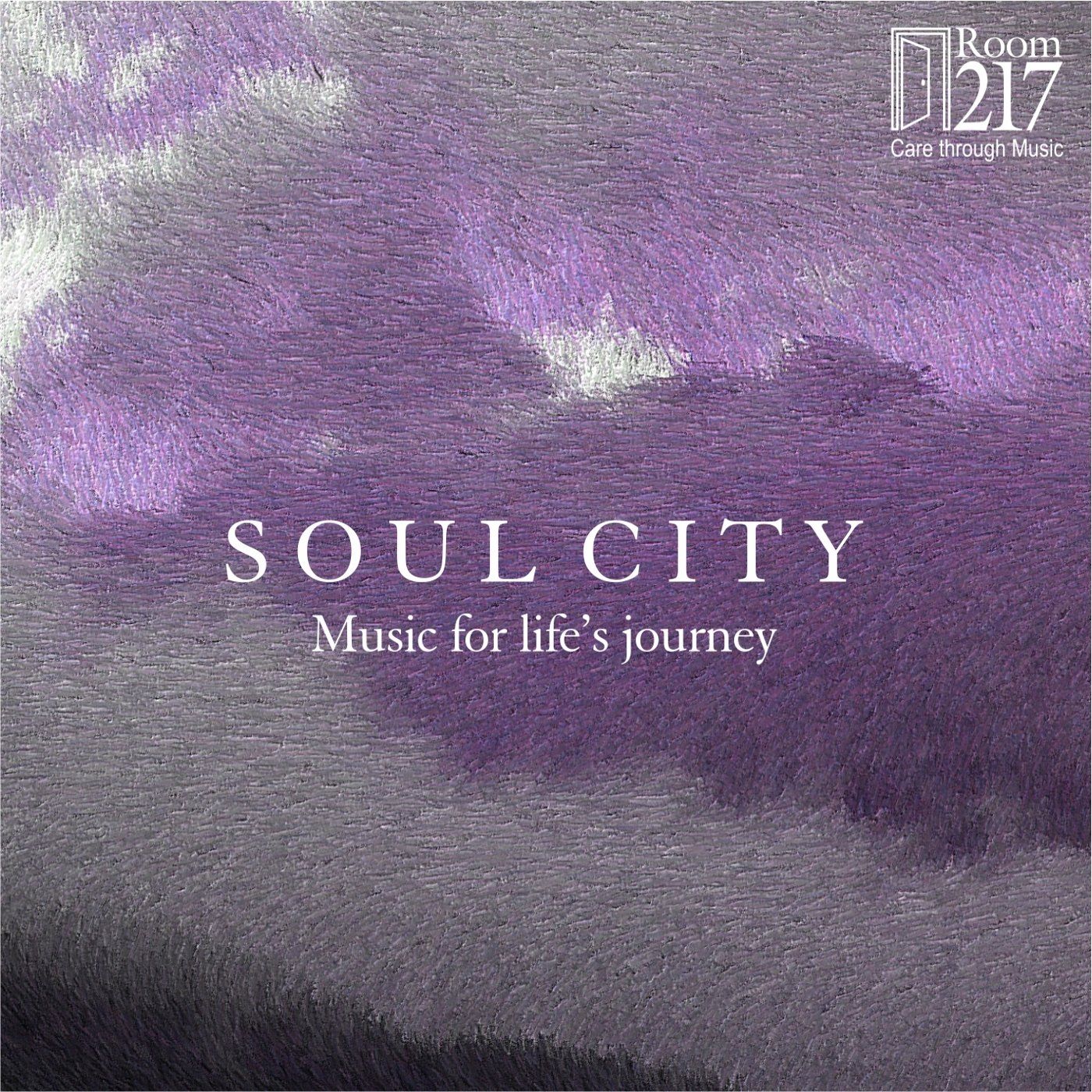New Sounds in Palliative Care
The effects of my family singing around Dad as he was dying has inspired me to help other families support loved ones with music. Music becomes an important accompaniment through an end of life journey. I see it as a valuable psychosocial and spiritual tool, enhancing connection and communication, strengthening relationship completion, and offering existential meaning and support. These outcomes help to inform performance methodology and production values of Room 217’s music care Collection series.
Collection 1 is a mix of familiar music designed for whole family care. Using a gentle ribbon of two to four “colours” of sound, the music ebbs and flows, is paced around the 60 beats per minute mark to entrain with resting heart rate. Collection 2 increases the breadth of universally familiar western songs from various genres like country, jazz, inspirational, and Broadway.
Over the past decade, the sounds of the 12 albums in Collections 1 & 2 have resonated in hospice, palliative care, long-term care rooms, and in private homes across the country. Whether delivered by CD, itunes or a streaming service, the Room 217 brand of comfort music has been used by professional and family caregivers to accompany thousands of Canadians in their end of life journey.
This year, we have begun to produce two new collections that will help meet expanding needs of palliative and end of life care in Canada. We are planning to launch both collections in April 2020 at the Hospice Palliative Care Ontario conference.
Collection 3 is all about diverse sounds. While we may not meet every culture in this collection, we are using universal ethnically inclusive sounds like the oud, sitar, native flute, shokahachi, zheng, kalimba and panpipes. In this collection, it will be the timbre – colour – of these sounds, rather than songs, that are associative. We are creating improvisational soundscapes, performed in collaboration with expert musicians of various cultures. Our talented creative leads, Aaron Lightstone & Justin Gray , are developing a production process that includes a cultural discovery process with master musicians and palliative care experts. Together they determine meaningful soothing sounds within a cultural context. As themes emerge, soundscapes will be created, and albums will be named.
Collection 4 is for the boomers. Boomers notoriously have a strong relationship to music and are now populating end of life settings as both care receivers and caregivers. There are thousands of potential songs for these six albums, so a process of song selection has been critical. Over the past year, we have engaged in surveys and focus groups with Room 217 stakeholders to determine song lists. Veteran producer Carmon Barry and performer/arranger Aidan Mason join me on the creative team for this collection. Watch for these upcoming albums:
| [IMAGE] | Road Trip Favourites
|
[IMAGE] | Heart & Soul
|
|||
| [IMAGE] | Dance Songs
Music, milkshakes and fries. These are the songs you picked from the jukebox and danced to. That you bopped and shimmied to. |
[IMAGE] | Songs of courage and hope
|
|||
| [IMAGE] | 60's folk scene music
|
[IMAGE] | Pop and rock from the UK
Mop top, Liverpool, mini-skirts – lots of the great stuff came from the British Invasion of pop music. |
We’re excited to expand the Room 217 music library with 12 new albums to touch more lives and reach into more rooms with the healing power of music. To date, we have raised 20 per cent of production costs. Because we are responding to the need for diversity in music for palliative care, Room 217 encourages financial support from a variety of cultural groups. If you would like more information on how you or your organization can be involved in helping us with either of the new Collections, contact Deb Bartlett dbartlett@room217.ca.
Bev Foster, MA, BEd, BMus, ARCT, AMus, is the Founder and Executive Director of the Room 217 Foundation, an organization dedicated to music and care. She is an experienced musician and educator who speaks and writes extensively on the power of music, especially in life limiting situations.



Charitable Registration #85728 5092 RR0001 • Room 217 Foundation™
Box 145 Port Perry, ON, L9L 1A2 • 844.985.0217








